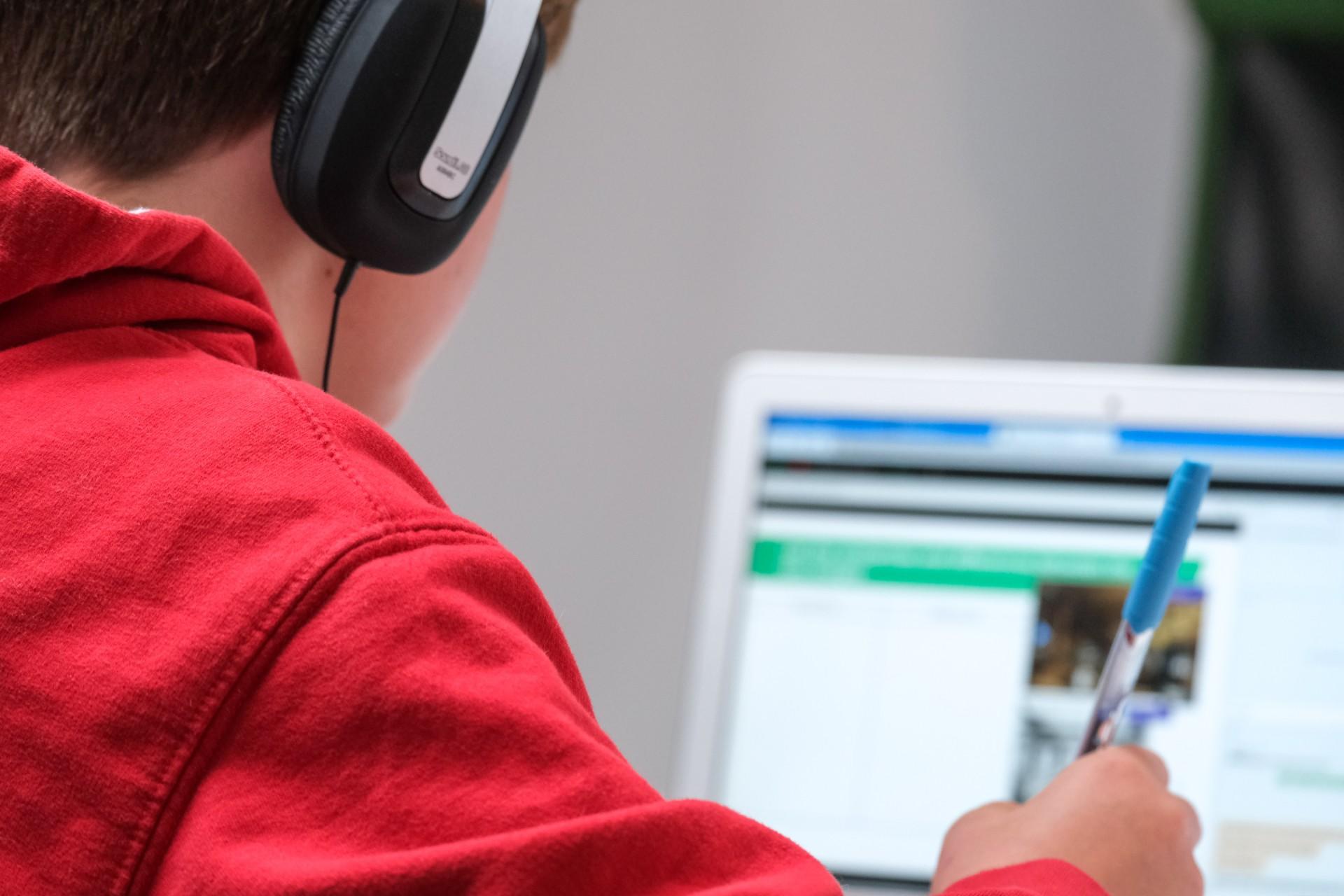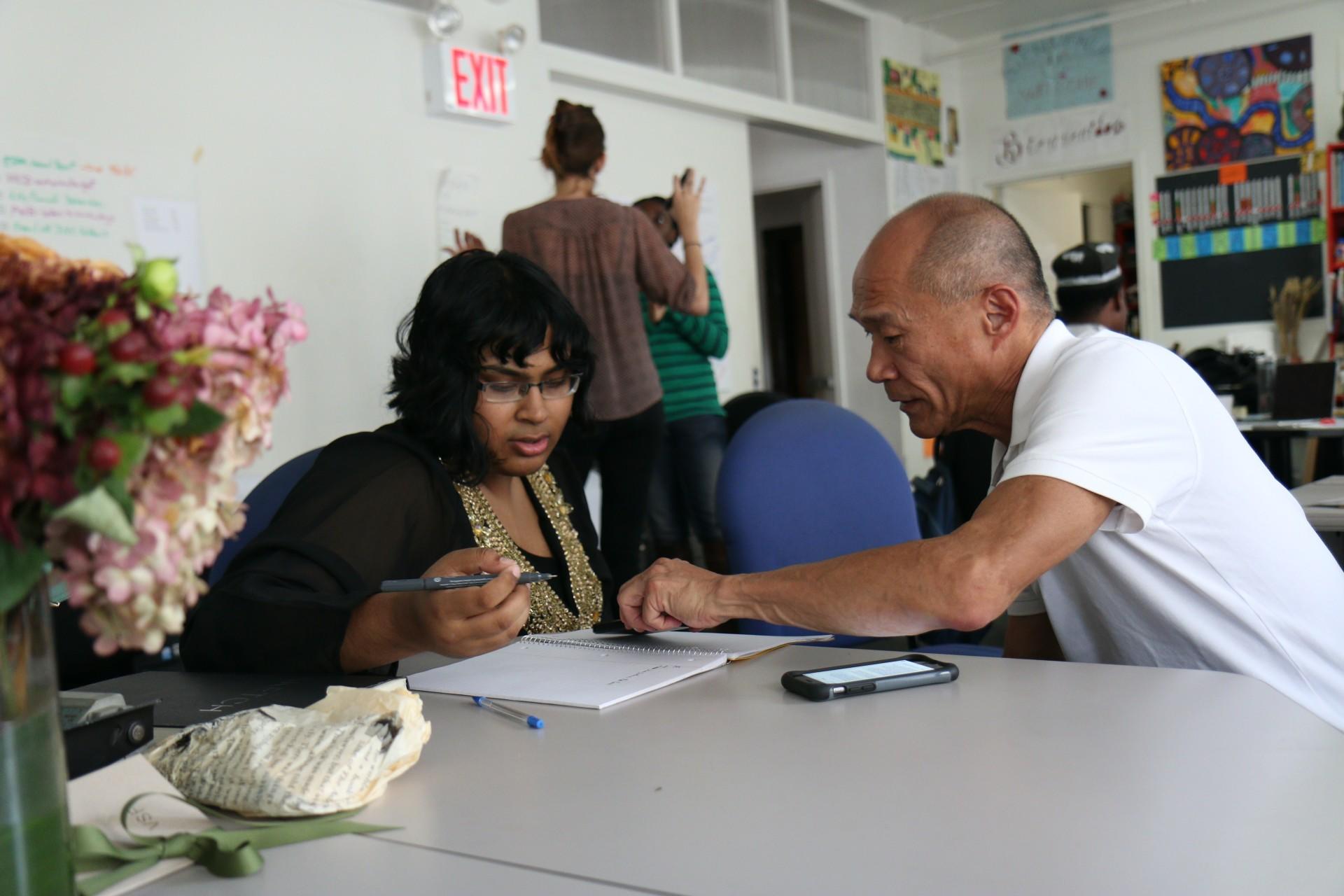Imagine you come across a rare book by Zola or Sartre sold by a bookseller along the Seine. You order a cup of coffee in a Parisian café and start reading that exciting literary work...
And you can understand every single word in the original language!
But is that enough to prove that you are a fluent French speaker to a potential employer or for university studies?
Hélas, no.
Most companies and institutes require an official language certificate from their applicants approved by The French Ministry of Education or another authority.
And you should understand that a good NCEA score in French or even a university diploma may not be accepted.
French language skills are evaluated according to the Common European Framework of Reference for Language, or CEFRL.
What is this framework about? There are three different levels of language skills, including intermediate and advanced, that learners can reach year by year.
Basic knowledge of French is sufficent for the A1 or A2 level. B1 and B2 exams are equivalent to intermediate language skills. Finally, having C1 or C2 means that you are completely fluent in the language
A the end of this article, you can find a table summing up the correlation between the French language exams and the CERFL standards.
The three main exams intermediate and advanced French students can take upon completing a language course are DILF, DELF and DALF.
Let us find out more about them.
You can also learn more about the cost of French tutoring on our blog about education.

Initial language certificate DILF
Understanding the acronyms DILF and DELF can be helpful to know the levels they are meant for: the I in DILF stands for initial; and E in DELF represents études – the French word for studies.
So, DILF is a diploma that can be delivered to beginners, who have picked up the most basic French vocabulary and grammar.
That said, DILF is still an official certificate approved by the French Ministry of Education. So, if a basic level of French skills (or A1 on the CERFL scale) is enough for your goals, that's something you should aim at.
However, don't get it wrong, DILF isn't given to anyone who'd sign up for the test. It tests all the main language abilities, which are reading, writing, speaking and listening, and can require serious preparation.
- To sail through the reading section, you'll need to understand simple instructions and basic information.
- In the writing portion, the candidate will be asked to fill out an official form or write a simple message. Knowing French numbers can be important for that purpose.
- The student's ability to understand an oral public message or instruction is tested in the listening part, again with a particular focus on numbers.
- The candidates' speaking are tested through an interview with a several examiners. That usually includes several conversational activities, such as introducing yourself to people or making an appointment.
The most valuable sections of the exam are speech and listening comprehension. They can bring the candidate 70 points in total, while writing and reading tally up to 30.
To pass the exam, the candidate is required to earn 50 points out of 100.
A satisfactory result for the speaking and listening parts would be 35 out of 70.
It's important to note, that there are no particular grammar and verb conjugation exercises. The goal of the exam is to test the candidate's ability to use French in real-life situations.
A lot of learners take DILF before starting to prepare for the even more serious DELF exam.
A good way to improve your chances of success in the exam is to spend some time in France, learning from the people around you.
Otherwise, you can take French courses with Superprof tutors. You can also find a French teacher on Superprof.

Everyone can take DELF
Just to make it clear, you can sit any level of DELF without passing the previous ones. Everyone can get the certificate they need for professional or educational reasons if they have good skills to meet linguistic requirements.
DELF isn't just one specific exam but it offers a range of tests to meet any French language student's needs. That of course includes DELF Prim – for young students, and DELF Pro, the test focusing on professional communication skills.
However, most students choose to sit DELF Tout Public, meant for general public.
There are four levels of DELF that are A1, A2, B1 and B2, each being more difficult than the previous one.
As for the content of the exam, just like DILF, it evaluates students' four main language skills, namely reading, writing, speaking and listening.
However, the subjects included in DELF are much more complex and diverse than those in DILF. That's why, the exam can last from one to several hours depending on the level.
For instance, the A1 test can be passed in one hour and twenty minutes, whereas the B2 exam lasts over two hours and can address a wide range of topics, from politics to French cuisine.
A candidate can sit any level of DELF during an exam session to get the certificate they need to meet professional or other requirements.
What can be useful though is to do a trial test on the DELF website to see if your level is good enough or if you should take more courses that year.
All you need to get the certificate is to gain more than 50 points out of 100 even if some of your language skills may be better than others.
If you don't cross that threshold, you will have to resit the exam later on, which is possible 60 days after the first trial. Unlike university and NCEA exams, you won't be able to retake only some parts of the exam you were bad at but you will have to do each section again.
The cost of DELF varies depending on the level you aim at. As A1 lasts less than two hours and B2 is longer, the former is slightly cheaper than the latter. Just to give you an idea, the current fee for DELF A1-A2 is $100 and for DELF B1-B2, students will be charged $120.
If you retake the exam several times, you will have to pay for each trial.
That's why it can be useful to prepare for DELF with a qualified online tutor.
What about DALF?
Those who have been taking French lessons at university or in their free time for several years may feel like they are almost bilingual in French since you are at each with speaking, reading and writing.
In that case, the right exam for you is DALF: it's a much more challenging test since you need to be able to talk about humanities, social studies and be informed about current events happening in France.
To get a C1 certificate, you will have to take an exam that lasts over four hours, and costs £160.
That is not the limit though. A student can do even better and register for C2, which is close to the level of a native speaker.
So, that's it. Now you know what the different levels of DILF, DELF and DALF stand for and can choose the right exam for you. But how to make sure you will pass it when the time comes? Keep reading to find useful tips that will help you.

Pass DELF with success
Register for the right exam
If you are an adult language learner, you basically have two options: Public Access exam or DELF Pro. Those willing to study in France often opt for the first one, whereas the second can be better suited for professional purposes.
But of course, any of the certificates would be useful for your life in France.
Both exams test the candidates' speaking, listening, reading and writing skills but focus on slightly different topics and vocabulary.
To pass DELF Pro, you need to be at ease with business terminology, which you'll use at work later on.
As for young students, they have a few additional options:
- Prim is meant for primary school children taking French courses. The available levels are A1 and A2.
- Junior aims at kids and teens and covers the levels from A1 to B2
- that's basically the same exam as for adults, but topics discussed are adapted to the student's age.
- Scolaire is similar to the Junior category but students take it in a classroom, at a language learning center.
- For example, children taking courses at Alliance Française can be encouraged to sit DELF by their teacher.
Contact Your Closest Testing Center
Once you feel that you have taken enough French courses in person or online and can pass DALF the same year, you will of course need to find a testing centre near you. You can look for local options, for example French lessons Wellington.
Not all language schools are entitled to administer the DELF exam in New Zealand.
Contact the centre that best suits you to inquire about the next test dates and the requirements you'll have to meet to be let in.
Looking for information on practical details cannot be the most exciting task but once you have registered for a time slot, you can start spending more hours on revision.

Get more practice
Learning French is a long process that can take more than one year. The period before DELF is when students should study more intensively than ever.
In addition to your French courses, in which you should query your French teacher overall unclear aspects of the language, you can also spend time watching French TV or talking to people.
Hiring a French tutor on Superprof can help you become more confident and meet the requirements of the exam!
Or, you can also listen to French music to boost your language skills and expand your general culture at the same time. You can also search for French lessons Auckland.
Whether you are a child or an advanced adult learner, these suggestions can get your skills to a new level in less than a year.
Finally, if the opportunity presents itself, it can, of course, be useful to study in France for full immersion into the language.
So, choose the reinforcement activities that suit you best to practise outside your intermediate or advanced language courses and you'll be sure to get the language certificate you need!
There are more tips about practising your French skills in your town or online in the article on the topic.
And before we finish, let's have a look at where the DELF exams are located on the CERFL scale!
| DELF Prim | Primary school students aged 7 to 12 | Levels tested: A1.1; A1; A2 |
|---|---|---|
| DELF Junior | Secondary school students aged 12 to 17 | Levels tested: A1; A2; B1; B2 |
| DELF Scolaire | Secondary school students aged 12 to 17 | Levels tested: A1; A2; B1; B2 |
| DELF Tout Public | Adults | Levels tested: A1; A2; B1; B2 |
| DELF Pro | Adults | Levels tested: A1; A2; B1; B2 |
| DALF | Adults | Levels tested: C1 and C2 |
Summarise with AI:















